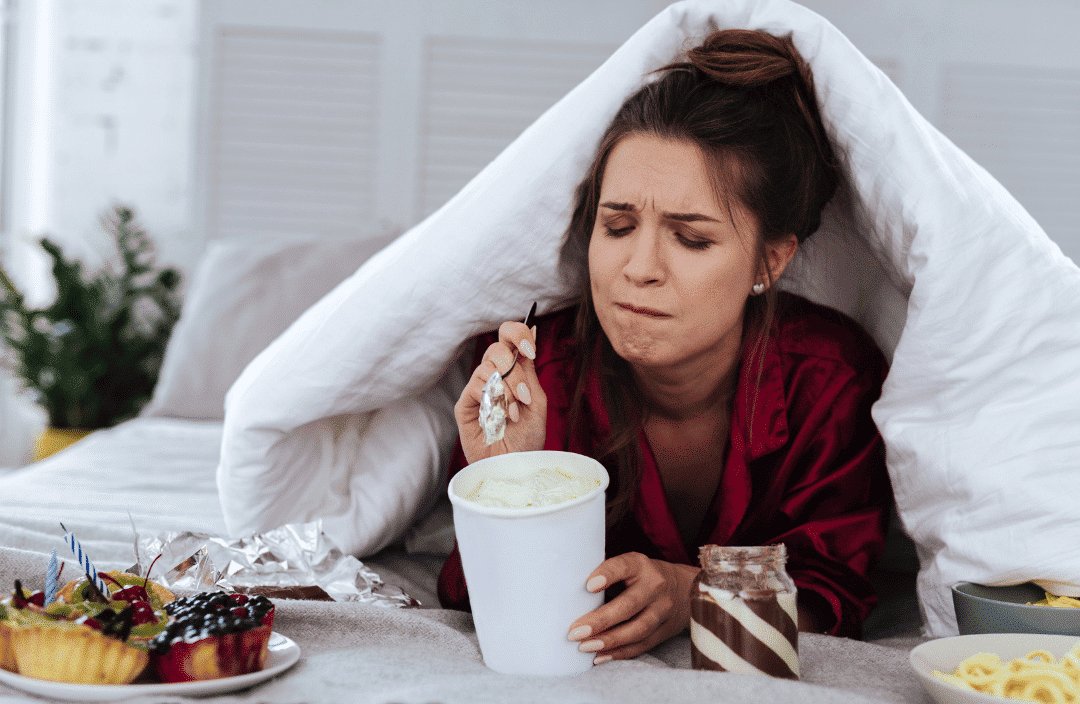

The emotional eating cycle begins with the urge to find comfort in food whenever you feel stressed, exhausted, angry, lonely sad or even bored. These feelings can start a dangerous emotional eating cycle that is difficult to break free from. After consuming a calorie-dense snack, the original emotional issue remains, and on top of that, guilt about overeating begins to set in. Unfortunately, food is not able to make emotional problems go away, and more often than not, stress eating makes you feel worse than before. For those who are already overweight, the pull toward high-calorie foods and overeating might be even stronger. Despite not being particularly hungry or in need of calories, humans naturally gravitate toward "comfort foods" that are higher in fat or sugar content, like fast food and desserts, when they feel upset. Typically, the driving force behind emotional eating is stress, and it plays such a large role in emotional eating that it is often referred to as "stress eating."īecause of the hormones that stress releases, stress can negatively affect your eating habits. Eating is used as a coping mechanism rather than to satisfy hunger. What Are the Causes of Emotional Eating?Įmotional eating occurs when you turn to food to make yourself feel better.

#HELP WITH STRESS EATING HOW TO#
Keep reading to learn how to overcome emotional eating and deal with your stress in a more positive way.

This article will answer these questions and more by going over the causes of emotional eating, common stress eating symptoms and tips to help stop stress eating. But why does eating relieve stress, and what makes you crave certain foods when you're upset? In fact, stress eating is a common behavior that 27% of adults deal with. If all you want is a big slice of chocolate cake whenever you feel stressed out about a big work project, family issues or social obligations, you're not alone. Inclusion and Adaptive Support Services.


 0 kommentar(er)
0 kommentar(er)
